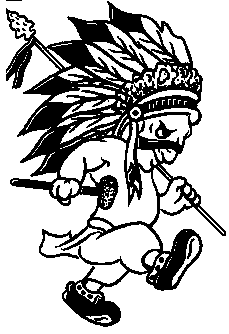by George Bird Grinnell
INDIAN CHARACTER
THE Indian has the mind of a child in the body of an adult. The struggle for existence weeded out the weak and the sickly, the slow and the stupid, and created a race physically perfect, and mentally fitted to cope with the conditions which they were forced to meet, so long as they were left to them selves. When, however, they encountered the white race, equipped with the mental training and accumulated wisdom of some thousands of years, they were compelled to face a new set of conditions. The balance of nature, which had been well enough maintained so long as nature ruled, was rudely disturbed when civilized man appeared on the scene. His improved tools and implements gave him an enormous advantage over the Indian, but this advantage counted for little in comparison with the mental superiority of the civilized man over the savage.
People who have no knowledge of Indians imagine them to be merely ignorant people, like uneducated individuals of the white race, and compare them to the poorest of the Italian, Polish and Russian immigrants to this country. They suppose that if the Indian were willing to take a spade and shovel dirt, and to send his children to school, the whole great problem of his progress would be solved at once and the race would become a self-supporting part of the population of the United States, able to hold its own in the competition which is becoming more and more a feature of American life.
This is not the case. The Indian is not like the white man of any class or condition; because his mind does not work like the mind of the adult white man. The difference which exists in mental attitude does not imply that the Indian is intellectually feeble, for when the young Indian is separated from his tribe and is brought up in association with white people, and so has an opportunity to have his mind trained to civilized modes of thinking and to imbibe civilized ideas, he is found to be not less intelligent than the average white. The difference in mind means merely that the Indian, like every other human being, receives his knowledge and his mental training from his surroundings. The boy, who is brought up in the camp and associates constantly with his own race, sets up for his standard of wisdom and learning the old and wise men of the tribe who obtained their position of precedence in the old days of war and hunting and who, of course, were born and reared in savagery. His ideas thus take their tone from the old people whom he is taught should be his examples, and will not be very different from theirs. He will think as they think, and employ the same reasoning processes that they do. There will be some slight advance in thought brought about by the rapid changes of modern times, which must of necessity have some effect on those who observe them, but as many of these changes are not at all comprehended by the Indians, the advance will be slow.
I have said that the Indian's mind is that of a child, and by this I mean that it is a mind in many respects unused, and absolutely without training as regards all matters which have to do with civilized life. The Indian is a close observer, and in respect to things with which he is familiar which are with in the range of his common experience he draws conclusions that are entirely just so accurate in fact as to astonish the white man, who is here on unknown ground. But in matters which are not connected with the ordinary happenings of his daily life he is wholly unable to reason, because he has no knowledge on which reasoning may be based.


No comments:
Post a Comment